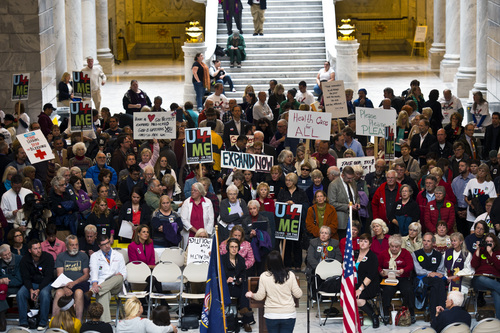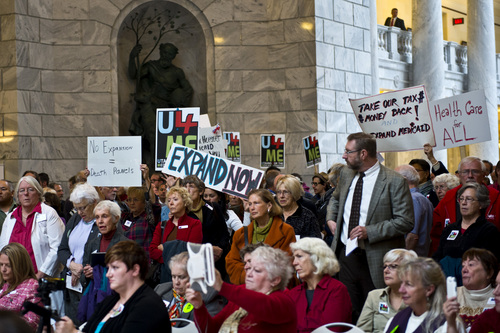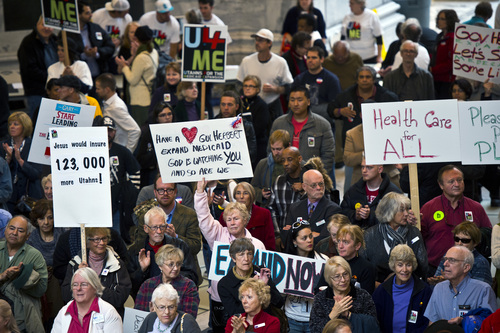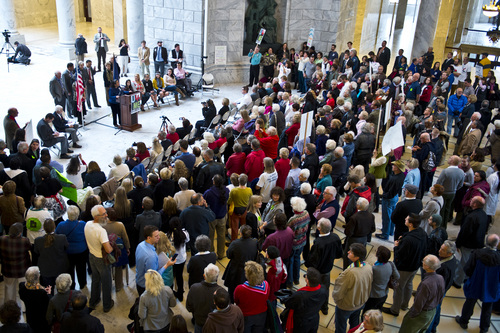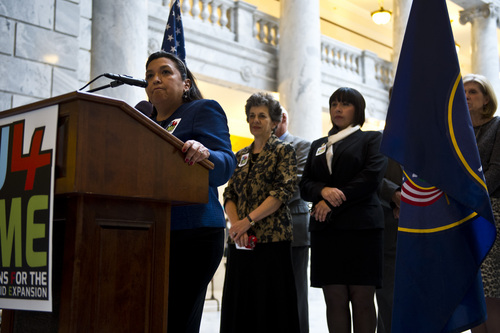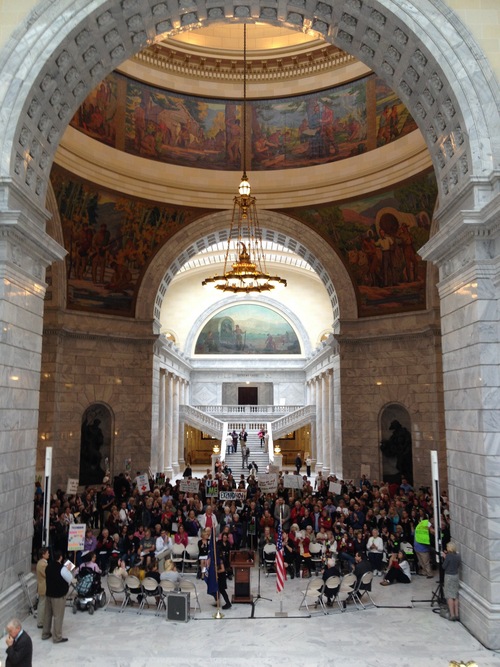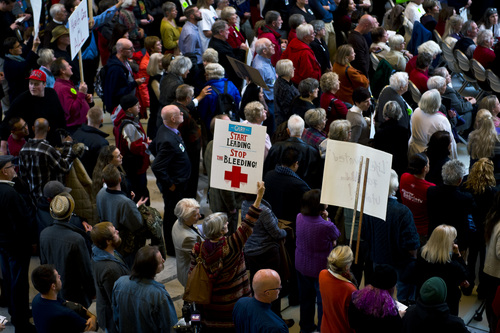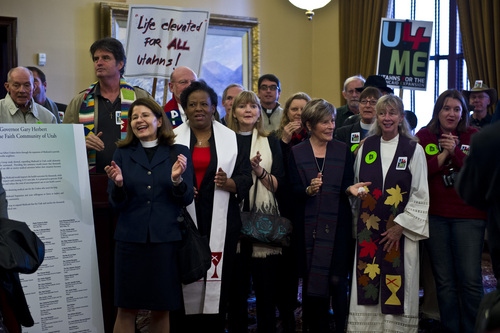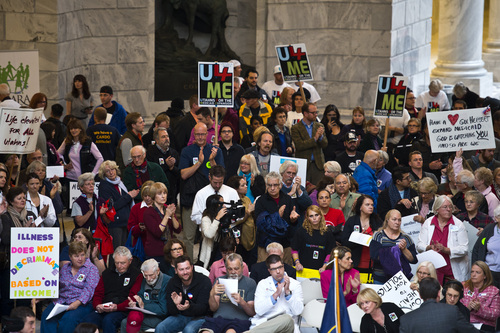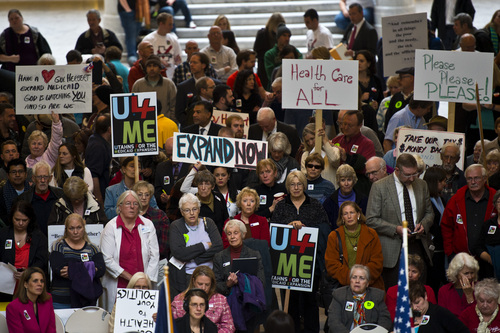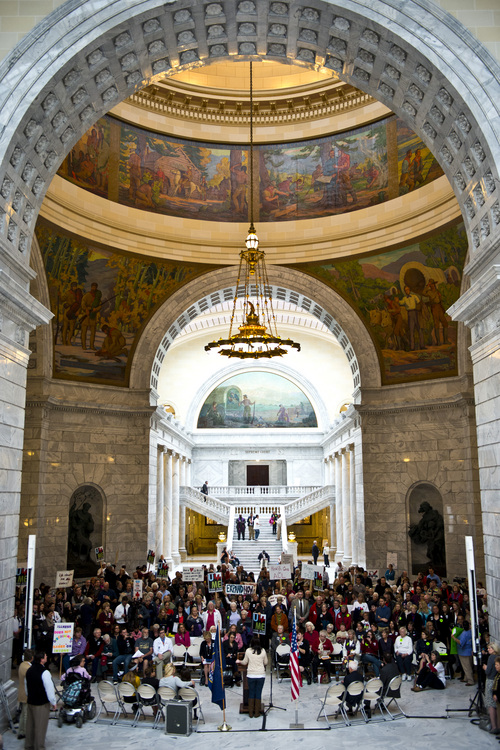This is an archived article that was published on sltrib.com in 2013, and information in the article may be outdated. It is provided only for personal research purposes and may not be reprinted.
Supporters of expanding Utah's Medicaid program rallied at the state Capitol Wednesday, calling on Gov. Gary Herbert to cover more uninsured residents with the low-income health safety net.
The event was organized by Utahns for Medicaid Expansion, which said it was supported by businesses, nonprofits and health care organizations.
Also on Wednesday, more than 100 faith leaders urged Herbert to expand the program via a full-page advertisement in The Salt Lake Tribune and the Deseret News.
"We respectfully ask that you lead us in finding the way to expand Medicaid that fits Utah and reaches the thousands of our neighbors who are in desperate need of medical care," the open letter concluded.
An expansion, envisioned by the Affordable Care Act but deemed voluntary for states by the U.S. Supreme Court, would cover an estimated 123,000 uninsured Utahns. Analyses show it would bring billions in federal funding to the state during the next 10 years, create jobs and reduce the charity-care burden on hospitals.
Herbert has said he will not make a decision until 2014, allowing him to confer with lawmakers — while Republican lawmakers remain opposed, concerned about future costs. There's no deadline for deciding, though states that drag their feet risk forgoing federal funding and delaying coverage.
The Coalition for a Compassionate Utah, a collection of 15 diverse nonprofits, says it has generated more than 1,000 emails and phone calls also urging the governor to expand.
The newest members — Fourth Street Clinic, the Gandhi Alliance for Peace, Utah Disability Caucus and the National Council of Jewish Women, Utah Section — join others that focus on health care, poverty, religious, environmental and labor issues.
The Family Investment Coalition, a group of low-income advocates, asked Herbert earlier this month to prepare two budgets, one with the expansion and one without, so the public can see the dollars-and-cents impact of the change.
But Herbert said last week he won't include the expansion in his budget proposal next month, saying the program would likely be "a wash" financially for the state.
"We'll look at the way to do Medicaid and Medicaid expansion in a way that is in the best interest of the taxpayers, both in the short term and the long term," Herbert said during his monthly KUED news conference. "We are analyzing the ramifications of doing full expansion or not doing any expansion."


